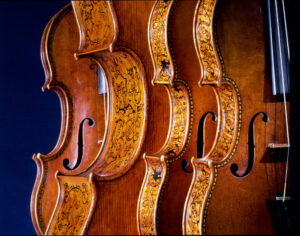 Violin & It’s Importance in Western Culture
Violin & It’s Importance in Western Culture
The violin is one of the most iconic instruments in Western culture! It has played a significant role in the development of Western classical music and continues to be a beloved instrument in contemporary music. In this blog post, we will explore the history and importance of the violin in Western culture.
History of the Violin…
The violin was first developed in the 16th century in Italy. It is believed to have evolved from the medieval fiddle, which was played by peasants and minstrels. The early violins were smaller than the modern violin and had a flatter bridge. Over time, the violin evolved to its current form, with a curved bridge and a distinctive hourglass shape.
The violin quickly became popular in the courts of Europe, where it was used for both chamber music and orchestral performances. In the 18th and 19th centuries, the violin became a solo instrument, and virtuosos such as Niccolò Paganini, JS Bach, and Mozart helped to elevate the status of the instrument.
Importance of the Violin in Western Culture…
The violin has played a significant role in Western classical music, where it is often the lead instrument in orchestral and chamber music. The violin is also commonly used in folk music, and it has become a popular instrument in contemporary music genres such as rock and jazz.
One of the most significant contributions of the violin to Western culture is its role in the development of classical music. The violin has been used to compose some of the most beautiful and complex pieces of music in history. The music of composers such as Wolfgang Amadeus Mozart, Ludwig van Beethoven, and Johann Sebastian Bach would not have been the same without the violin.
The violin has also played an important role in the cultural identity of many Western countries. For example, the sound of the fiddle is synonymous with traditional Scottish music, while the sound of the violin is closely associated with classical music in countries such as France and Italy.
In addition to its cultural importance, the violin has also had a significant impact on the development of music technology. The pickup and amplification technology used in modern electric guitars and other stringed instruments owe a debt to the development of the violin.
To sum-up, the violin is one of the most important instruments in Western culture for it’s many highlights throughout the classical repertoire and ethnomusicological adaptations. The violin continues to be a beloved instrument in contemporary music, and its influence can be felt in a wide range of musical genres. Whether you are a classical music lover or a fan of contemporary music, the violin is a vital part of Western culture that will continue to inspire musicians for generations to come.
